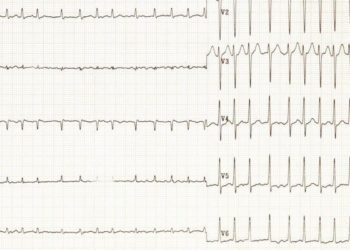Socioeconomically disadvantaged older persons are at greater risk of impairments after ICU hospitalization
1. Socioeconomically disadvantaged older persons are at greater risk for decline in function and cognition after an ICU hospitalization than more advantaged counterparts.
2. Socioeconomically disadvantaged older persons are at greater risk for disability after ICU hospitalization compared to their more advantaged counterparts.
Evidence Rating Level: 2 (Good)
Study Rundown: Post-intensive care syndrome (PICS) is defined as new or worsening impairments in function, cognition, and mental health after a critical illness. Older patients are especially susceptible to these impairments because of their preexisting health concerns such as frailty, cognitive impairment, and sensory deficits. Moreover, the number of older persons staying in an ICU in the US is projected to rise due to the aging population. However, there is a gap in knowledge as to understanding equity in patient-centered outcomes among ICU survivors. This study found that socioeconomic disadvantage among older adults is associated with the decline in function and cognition after ICU hospitalization compared to more socioeconomically advantaged older patients. This study was limited by factors such as administrative data, variability in the timing of baseline and outcome assessments, and proxy selection. Nevertheless, these study’s findings are significant, as they demonstrate that socioeconomically disadvantaged older persons are at greater risk of functional and cognitive decline after an ICU hospitalization.
Click to read the study in AIM
Relevant Reading: Health Equity and Critical Care Survivorship: Where Do We Go From Here?
In-Depth [longitudinal cohort study]: This retrospective analysis of a longitudinal cohort study involved community-dwelling older adults in the National Health and Aging Trends Study. Patients who were Medicare beneficiaries aged 65 years or older living in the US were eligible for the study. Patients who were unavailable for an interview or unable to consent to be followed up were excluded from the study. The primary outcome measured was ICU admission, functional assessment, cognitive assessment, and mental health assessment. Socioeconomic disadvantage is defined as dual-eligible Medicare-Medicaid status. Outcomes in the primary analysis were assessed via Poisson regression and logistic regression models as well as sensitivity analysis. Based on the analysis, the sample included 641 ICU hospitalizations for function, 458 for cognition, and 519 for mental health. Among the study sample, the socioeconomic disadvantage was associated with a 28% increase in disability and decline in function after an ICU hospitalization (incidence rate ratio, 1.28; 95% Confidence Interval, 1 to 1.64). Socioeconomic disadvantage was also associated with a nearly 10-fold greater odds of transitioning to probably dementia (odds ratio, 9.79; 95% CI, 3.46 to 27.65). Socioeconomic disadvantage was not associated with symptoms of depression and anxiety after ICU hospitalization (incidence rate ratio, 1.33; 95% CI, 0.99 to 1.79), as post-ICU mental health symptoms were seemingly driven by pre-ICU mental health. Overall, this study demonstrated that socioeconomically disadvantaged older adults have a greater risk of functional and cognitive decline after an ICU hospitalization, highlighting the need to prioritize low-income seniors in rehabilitation and recovery after critical illness.
Image: PD
©2022 2 Minute Medicine, Inc. All rights reserved. No works may be reproduced without expressed written consent from 2 Minute Medicine, Inc. Inquire about licensing here. No article should be construed as medical advice and is not intended as such by the authors or by 2 Minute Medicine, Inc.







